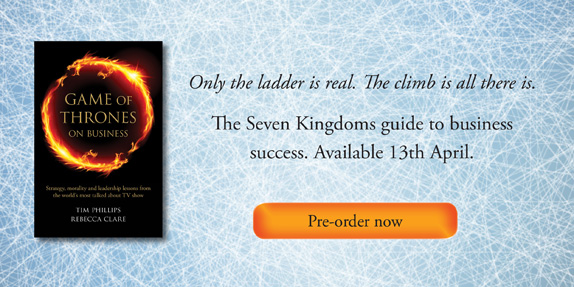Entertainment
White/Pinkman: The Ultimate Business Partnership?
1 August 2014 by Catherine Holdsworth in Business and finance, Entertainment
In less than a year, the UK will have a general election and the infamous coalition (or business partnership) of David Cameron and Nick Clegg will most likely be dissolved, resigned to the history books as one of the most unusual political partnerships of the decade. Another recent partnership to disband is that of Walter White and Jesse Pinkman, an incredibly unlikely team who were incredibly successful.
Breaking Bad has sadly ended (though we wait in hope for the promised spin-off Better Call Saul) but what can we learn from Walter White and his accomplice Pinkman about running a successful business?
Perhaps the main reason that the White/Pinkman team worked so effectively was because there was no prior friendship or association to cloud the progression. Once they had ironed-out Pinkman’s doubts about his former chemistry teacher, they were (at least in the early years) an infallible team. One is reminded of the ultimate successful businessman, Godfather Michael Corleone, and his words to his brother, ‘It’s not personal, Sonny, it’s strictly business’. Corleone, however, was not half of a partnership, to his downfall, and was ultimately left standing alone. Mixing business and family is dangerous.
 Unrelated to each other, Walt and Jesse were able to function on a business level, identifying their strengths (Walt’s chemistry knowledge and Jesse’s networking skills, aka contacts within the meth community) and exploiting them. Although the partners fell out on many occasions, only towards the end of Breaking Bad, as Walt became increasingly despotic, did the partnership go seriously awry. Arguably, by season 5, Walt looked on Jesse as a son and the line between family and business became blurred (remember when Jesse went to Walt’s for dinner?), although Jesse never called him anything but Mr White (unless you count ‘bitch’).
Unrelated to each other, Walt and Jesse were able to function on a business level, identifying their strengths (Walt’s chemistry knowledge and Jesse’s networking skills, aka contacts within the meth community) and exploiting them. Although the partners fell out on many occasions, only towards the end of Breaking Bad, as Walt became increasingly despotic, did the partnership go seriously awry. Arguably, by season 5, Walt looked on Jesse as a son and the line between family and business became blurred (remember when Jesse went to Walt’s for dinner?), although Jesse never called him anything but Mr White (unless you count ‘bitch’).
When running a business, exploit your assets and skills. Be pragmatic and employ those who are good at their job rather than somebody that you owe a favour to or who is your friend. There’s nothing worse than a corporate dispute that breaks up a family. Had Walt not involved wife Skyler in laundering the money, perhaps his business could have flourished for longer.
Focus on the reason for your business. For Walt, it was to pay for his health care and set his family up financially in case of his death. Becoming too involved in your business, at the expense of all else in your life, or losing focus can be very risky; eventually it became the only thing Walt cared about: ‘I did it for me. I liked it. I was good at it. And, I was really … I was alive.’ But did it do him any good?
Invest in a reliable partner; someone not afraid to call you out when you overstep the mark and who can contribute something different to you. Diversity and a willingness to embrace change are key. You may not have a lock-up piled high with money … but then maybe you will!
Anger Management for Orlando Bloom
30 July 2014 by Catherine Holdsworth in Current events, Entertainment, The Diversity Dashboard
As per usual, we in the Infinite Ideas office are entertained by the latest celebrity scandals. Today we were amused to read about Orlando Bloom throwing a punch at tween icon, Justin Bieber. While we empathise with Bloom, who seemed infuriated at the concept of young Bieber romancing his ex-wife, we do not advocate violence* and so we have decided to prescribe Mr Bloom some good old-fashioned anger management.
The brilliant book of calm offers excellent tips on how to beat those angry urges:
Anger in and of itself is not bad. If it was then you’d never have had the civil rights movement, women would never have got the vote, we would not have been able to remove corrupt leaders from our governments; quite a few good things have resulted from a well-placed sense of righteous anger. What’s bad is when you hurt someone else – either emotionally or physically – because you’re unable to express your anger appropriately.
Also, when you feel angry about something, consider fi rst if there is anything constructive you can do about it. Write to your MP? Write a letter of complaint? Ask to see a manager? Go to marriage or career counselling? Once you’ve exhausted the constructive ‘dealing with the problem’ options, look at dealing with the emotion. Physical exercise tends to drain away anger like nothing else. So perhaps you could go for a swim or a walk? Above all, don’t take your anger out on your friends and family. They are your support network and you should be kind to them. You know it makes sense.
Apart from anger management courses, you can remove yourself from the situation and go for a short walk to calm down. Or consider taking up an energetic sport like boxing or martial arts to channel your aggression safely. If you start to feel out of control, speak to your GP, who can also check for hormonal imbalance and advise on counselling services.
*In this case, we are in Bloom’s corner; Bieber had it coming!
Dear Usain Bolt …
30 July 2014 by Catherine Holdsworth in Business and finance, Current events, Entertainment, The Diversity Dashboard
It has emerged that Usain Bolt, Olympic 100m champion, has been quoted as saying that the 2014 Commonwealth Games in Glasgow were, ‘a bit shit’. No doubt Glaswegians are used to such language, but coming from a globally renowned athlete, this hits below the belt. We can sympathise with Bolt, who being from Jamaica, perhaps isn’t used to the traditional Scottish weather that has been especially atmospheric and representative of the Games’ host city.
Nevertheless, with over 70 nations competing this year, it would seem that Bolt’s cultural compass is a little off course. Luckily, our book, Diversity dashboard by Dr Deborah Swallow and Eilidh Milnes, offers excellent advice that we hope Bolt will take on board in time for Brazil 2016!
Ten strategies for clear, cross-cultural communication:
- Speak slowly and clearly
- Ask for clarification or summarize your understanding of what has been said
- Frequently check for others’ understanding
- Avoid idioms, metaphors and other colloquialisms
- Cut out jargon
- Clearly define your business concepts – e.g. what does ‘as soon as possible’ (or ‘a bit shit’) mean?
- Be specific
- Choose your medium of communication effectively
- Provide information via multiple channels
- Be patient
Walter White: father, teacher, small business owner
21 July 2014 by Catherine Holdsworth in Business and finance, Entertainment
It’s coming up to a year since I signed up to Netflix, intending to terminate my subscription after the free trial had finished. Walter White, however, had other ideas for me. Vince Gilligan’s series, Breaking Bad, had not concluded and so I was stuck with Netflix until it had. Twelve months on, I’m still paying!
So what can we learn from the antihero Walter White about business strategy? Over five seasons, White built up his small meth business from a mobile home, to an underground hub of activity, eventually going mobile. White declared ‘I’m in the empire business’, but was this really as effective as his original small business? We watched Walt go from teacher, to meth cook, to car wash owner, then culminating as head of his so-called empire.
 Even the greatest empires, however, must crumble. Walt’s ambition to get more money and power meant that he lost control of his company. Once the integrity and credibility of the company had been compromised (yes, even druglords can have integrity), Walt’s fall from grace was inevitable.
Even the greatest empires, however, must crumble. Walt’s ambition to get more money and power meant that he lost control of his company. Once the integrity and credibility of the company had been compromised (yes, even druglords can have integrity), Walt’s fall from grace was inevitable.
The success of Walt’s business was branding and efficiency. Well-planned cook sessions ensured that Walt and Jesse were efficient producers of the elusive blue meth. Even the smallest entrepreneurs can be successful by making their products unique to the market and easily identifiable when viewed alongside the goods of similar companies. Stand out from competitors by giving yourself an edge. Walt’s brand was not just the colour and purity of his product, it was his brand-name: Heisenberg; easily identifiable and synonymous with his product. Much like Walt delegated in his business (he was the cook, Jesse was the dealer) so you can optimise your profit margin by being the best at what you do.
Walt’s legitimate car wash business allowed for the shady meth business to flourish. Without advocating money-laundering, one can learn much from both businesses. Though it worked well to begin with, the growing meth empire was too much for the car wash to cover, as Walt’s wife Skyler struggled to launder the scale of the money that Walt was earning, it wasn’t long before both businesses folded. So what’s more important than an impossible-to-spend pile of money taking up valuable storage space, is integrity for both yourself and the business. Branching out too quickly could make your small business collapse like a house of cards.
Know your business, know what your customer needs and don’t let ambition overwhelm you.
A Day in the Life of a Book on the Underground
17 July 2014 by Catherine Holdsworth in 5742 Days, Book publishing, Entertainment
This morning I started my day at Dalston Junction. The weather was so lovely and hot I wanted to stay overground for as long as I could. I’ve got my lovely new sticker on my front so that people don’t throw me away. It says, ‘Pick me!’, ‘Read me!’. I could be their new favourite book.
Oops, excuse me, watch out there, I’m only little. It’s a bit of a squash on the train this morning, people must have important jobs to go to. I can keep you company on your journey, take me home. It’s hard to find a seat amongst all these commuters.
Phew! I manage to get a seat at Caledonian Road. Oh, somebody’s picked me up, yay, I hope you like me.
This afternoon I’m going underground. The escalators are really high for a small book like me. I’m at Whitechapel, on the District Line, going west. Whoosh, this train is coming very fast, it’s a good job I’m standing behind the yellow line! I hop on and zoom, we’re off. All the way under the city, I speed past Westminster, ‘Hello, Prime Minister!’ and on to Earl’s Court. Oh, careful with me. Somebody has put me in their bag, I wonder if we’re going to the London Book Fair…
My final ride of the day is the Bakerloo Line, what a funny name! I get on at Baker Street, such a huge fan of Sherlock Holmes, you know, I wonder if he will enjoy reading me. Oh well, no time to stop, racing all the way up the line to Paddington. Is he there? Perhaps I could share one of his marmalade sandwiches? Just catch the fast train to Oxford, I think I’ll pop in to the Infinite Ideas office and tell them about my adventure!
If you enjoyed reading about 5742 Days, Anniversary Edition’s day on the London Underground, check out the book, which is available now. Special thanks to @BooksUndergrnd for distributing our books.
Climbing the ladder of chaos – why we all need some Littlefinger in us (ahem)
7 July 2014 by Rebecca in Business and finance, Entertainment, Game of Thrones on Business
Can we control the future? Maybe, says Tim Phillips, a better question is should we even try?
There’s a famous speech, one of my favourite bits, in Game of Thrones in which Petyr Baelish, the amoral political fixer known as Littlefinger, dismisses the historical texts as, “a story we agree to tell each other over and over, until we forget that it’s a lie.” When Lord Varys points out that the alternative is chaos, Littlefinger points out that chaos isn’t something to fear:
 If the inhabitants of the seven kingdoms are fully occupied trying to avoid falling into a pit of chaos, the environment in which they live doesn’t help. When dead people can be reanimated, for example, which must be disorientating. ‘Winter is coming’, we are told at the beginning, which reminds inhabitants of the time when a previous winter lasted a generation. Why did it do that? Maybe it doesn’t matter much if there are undead people coming to kill you as a result.
If the inhabitants of the seven kingdoms are fully occupied trying to avoid falling into a pit of chaos, the environment in which they live doesn’t help. When dead people can be reanimated, for example, which must be disorientating. ‘Winter is coming’, we are told at the beginning, which reminds inhabitants of the time when a previous winter lasted a generation. Why did it do that? Maybe it doesn’t matter much if there are undead people coming to kill you as a result.
So Littlefinger has a point: when things change, old certainties become less valuable, less useful, no matter how comforting they are. Yet the idea that our societies and lives are in equilibrium is alluring for all of us.
We build it into the way we teach business, in which the forces of supply and demand balance to create stable prices and employment and growth. Yet, at the same time, we also know this isn’t really true. The economist Joseph Schumpeter was the first to identify a process he called ‘creative destruction’, in which innovation destroys the old world to create a better one. Real entrepreneurs don’t just tweak existing ideas, they rip them up and start again. If you do this successfully, you get your reward because you are in a field of one: but the risk of disaster is much greater. Schumpeter realised that disequilibrium is normal. We also now know that this applies in society, or to the weather.
It doesn’t even take an entrepreneur to create disequilibrium. In the UK, one in seven workers have been made redundant since the start of the financial crisis, which would have seemed inconceivable a decade ago. The chaotic nature of what economists call ‘the business cycle’ means that we might have a good idea of how secure our jobs will be next month, but no clear answer to the question if we ask about next year, and certainly no idea of the next 10 years.
We instinctively value continuity in our lives and our societies, and many of us react irrationally to disruptive change. In a recent experiment, the Royal Statistical Society took people who overestimated the problems of immigration, and confronted them with well-researched facts that contradicted their ideas. The people overwhelmingly decided that the statistics must be wrong.
We all think we wouldn’t do the same thing in our lives, but most of us react to sudden change by holding on to the stories we tell ourselves, even if they are not true. Not all of us can be a Littlefinger, climbing the ladder out of chaos, or a Schumpeterian entrepreneur, who creates the ladder in the first place.
We spend our lives in the understandable hope that chaos doesn’t come to our homes, families or workplaces. Insurance, savings and sandbags in the shed may help; but to flourish, rather than survive, we need to have a little bit of Littlefinger in us, and recognise that clinging exclusively to ‘the realm, or the gods, or love’ will eventually put us on the receiving end of some process of creative destruction.
Tim Phillips is author of Niccolo Machiavelli’s The Prince, Bertrand Russell’s The Conquest of Happiness, and Charles Mackay’s Extraordinary Popular Delusions and the Madness of Crowds.






